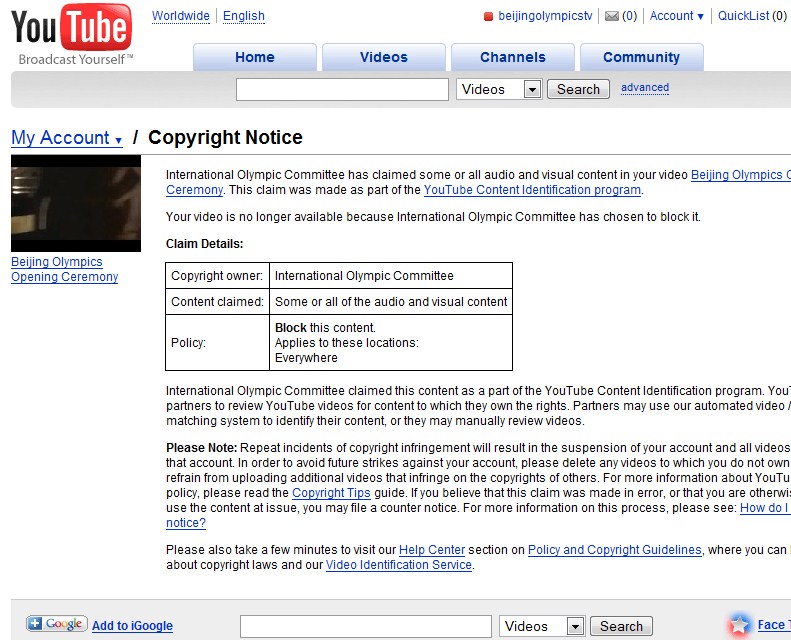Public knowledge has a short piece up on how the DMCA has been abused:
While it’s no secret that the DMCA has had a noticeable chilling effect on a number of different classes of innovators during the last decade, it’s still disheartening to hear of creative uses of content that have been squelched by big copyright holders. Earlier this month, on the film blog The House Next Door, film critic Matt Zoller Seitz wrote of fellow House Next Door contributor Kevin B. Lee’s recent tussle with YouTube. Lee had been posting video essays on YouTube that offered critical assessments of Hollywood films, both recent and classic. As part of his essays, Lee often included clips, of varying length, from the films that he discussed. Over the years, Lee had occasionally received DMCA takedown notices via YouTube and not knowing any better, had chosen not to contest them. On January 12th, however, he received his third and final notice and in accordance with YouTube’s “three strikes” policy, his account was locked and all 140 of his video essays were made instantly unavailable.




